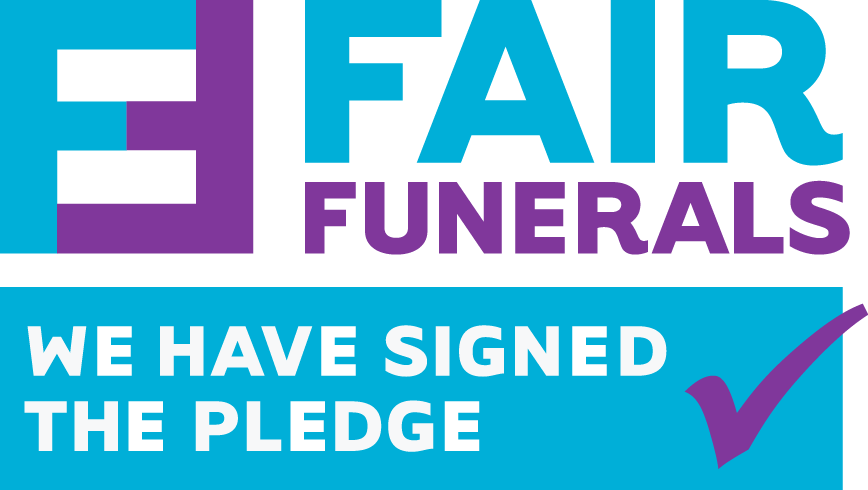How To Cope At A Funeral
Fear of funerals is a common experience that can stem from various sources, including anxiety about death, social discomfort, or difficulty processing grief. This guide offers practical strategies to help you navigate funeral anxiety and attend services with greater ease and comfort.
Understanding Funeral Anxiety
Funeral anxiety is more common than many people realize and it’s not just about grief. It often arises from a mix of emotional, social, and existential triggers that make the experience especially difficult:
- Feeling emotionally exposed: The pressure of mourning in public, where private emotions become visible, can leave many feeling vulnerable or overwhelmed.
- Unfamiliar surroundings: Whether it’s your first funeral or simply one from a different cultural or religious background, the unfamiliarity with customs, expectations, and rituals can stir unease.
- Confronting life’s impermanence: Funerals can be stark reminders of our own mortality, especially when the deceased is someone we relate to closely in age or life stage.
- Echoes of past loss: Attending a funeral can resurface feelings from previous bereavements, amplifying sorrow and emotional exhaustion.
- Navigating social expectations: Even in supportive circles, the fear of saying or doing the wrong thing in a highly emotional setting can spark social anxiety.
These feelings are not signs of weakness, they are natural responses to a deeply human experience. Reaching out for support and accepting that grief is personal and nonlinear can ease the weight. There’s no “correct” way to grieve only what feels right for you.
It’s important to recognise that funeral anxiety is a normal response to a challenging situation. Acknowledging these feelings and seeking support from trusted friends or family members can help alleviate some of the stress associated with attending a funeral. Remember, everyone processes grief differently, and there’s no “right” way to feel or behave at a funeral.
Coping with Open Coffin Fears
Open coffin funerals can be particularly challenging for those with funeral anxiety. However, there are strategies to help cope with this specific fear:
- Remember it’s optional: You are not obligated to view the body. You can pay your respects from a distance or simply attend the service without approaching the coffin. Many people choose not to view the body, and this is completely acceptable.
- Prepare mentally: If you choose to view the body, remind yourself that the person will look different than they did in life. This can help manage expectations and reduce shock. Consider asking someone who has already viewed the body to describe what to expect.
- Bring support: Ask a trusted friend or family member to accompany you, providing emotional support if needed. They can stay close by or even hold your hand if you wish to view the body.
- Use distraction techniques: Carry a small, discreet object to focus on if you feel overwhelmed. This can help redirect your attention and manage anxiety. A smooth stone, worry beads, or even a meaningful photograph can serve this purpose.
- Practice self-care: Before and after the funeral, engage in relaxing activities like taking a hot bath with aromatherapy oils to help calm your nerves. Create a calming routine that works for you.
- Set boundaries: Decide in advance how long you wish to stay at the viewing, if at all. It’s perfectly acceptable to briefly pay your respects and then step away.
If your fear is severe, consider seeking professional help. Some therapists use desensitisation techniques, such as “coffin-lying” experiences, which have shown promise in reducing death anxiety and avoidance behaviours in medical and nursing students.
Coping Strategies and Techniques
Here are some additional techniques for coping with funeral anxiety and grief:
- Practice self-care: Prioritise your physical and emotional wellbeing in the days leading up to and after the funeral. Get enough sleep, eat nutritious meals, and engage in activities that bring you comfort. Create a structured routine to help maintain stability during this challenging time.
- Use grounding exercises: When feeling overwhelmed, try the 5-4-3-2-1 technique. Identify 5 things you can see, 4 things you can touch, 3 things you can hear, 2 things you can smell, and 1 thing you can taste. Practice this technique before the funeral so it becomes familiar and easier to use when needed.
- Prepare emotionally: Visualise yourself coping well at the funeral. Imagine feeling calm and composed, and practice positive self-talk to boost your confidence. Rehearse simple phrases you might use when speaking with other mourners.
- Take breaks: Give yourself permission to step away briefly if emotions become too intense. Find a quiet spot to collect yourself before returning. Identify possible quiet areas at the venue beforehand.
- Use aromatherapy: Calming scents like lavender or chamomile can help reduce anxiety. Consider using essential oils or scented items for comfort. A scented handkerchief can provide discreet aromatherapy during the service.
- Practice mindfulness: Focus on the present moment rather than worrying about the future or dwelling on the past. This can help manage overwhelming emotions. Regular mindfulness practice before the funeral can strengthen this skill.
- Seek support: Connect with a grief counsellor or support group to process your feelings before and after the funeral. Online support groups can provide additional comfort and understanding.
- Create a memory object: Bring a small item that reminds you of the deceased to hold during the service for comfort and connection. This could be a photograph, piece of jewellery, or another meaningful object.
- Use breathing techniques: Try box breathing (inhale for 4 counts, hold for 4, exhale for 4, hold for 4) to calm your nervous system when anxiety spikes. Practice these techniques regularly so they become second nature.
- Write it out: Journaling your thoughts and feelings before the funeral can help process emotions and reduce anxiety. Consider writing a letter to the deceased expressing your feelings, even if you don’t share it.
Cultural Considerations and Virtual Funerals
Different cultures approach death and mourning in various ways, which can add another layer of complexity to funeral anxiety:
- Research customs: If attending a funeral from a different cultural background, learn about the expected customs, dress code, and rituals beforehand. This knowledge can help reduce anxiety about making cultural missteps.
- Ask questions: Don’t hesitate to ask a knowledgeable family member or friend about specific customs or expectations. Most people appreciate the effort to understand and respect their traditions.
- Virtual participation: With the rise of live-streamed services, consider whether virtual attendance might be a more manageable option for you. This can be especially helpful if you’re dealing with severe anxiety or physical limitations.
- Hybrid services: Some funerals now offer both in-person and virtual elements. You might choose to attend certain parts virtually while being physically present for others.
Supporting Children with Funeral Anxiety
Helping children navigate funeral attendance requires special consideration and age-appropriate support:
- Age-appropriate explanations: Explain what will happen at the funeral in simple, clear terms suitable for the child’s age. Avoid euphemisms that might cause confusion.
- Give choices: Allow children to participate in ways that feel comfortable for them. They might want to draw a picture, write a letter, or simply attend for a brief period.
- Prepare for questions: Children often ask direct questions about death and funerals. Answer honestly while maintaining age-appropriate language and sensitivity.
- Designate a support person: Assign a trusted adult to focus solely on the child’s needs during the service. This person can take the child for breaks or home early if needed.
- Follow the child’s lead: Some children may want to view the body while others don’t. Respect their wishes and never force participation.
Quick Reference Guide for Managing Funeral Anxiety
Before the Funeral:
- Gather information about the service format
- Plan your outfit the day before
- Arrange transport and timing
- Identify a support person to attend with you
- Practice grounding techniques
- Prepare simple responses for social interactions
During the Service:
- Arrive early to acclimate to the space
- Sit near an exit if possible
- Use breathing techniques as needed
- Take breaks when necessary
- Stay hydrated
- Use your support network
After the Service:
- Plan a quiet activity for afterwards
- Allow time for emotional processing
- Maintain your self-care routine
- Connect with support systems
- Consider attending a grief support group
Professional Support and Resources
Professional support can be invaluable in managing funeral anxiety. Here are specific ways to access help:
- GP Consultation: Your GP can provide initial assessment and referrals to appropriate mental health services.
- Bereavement Counselling: Many hospices and charitable organisations offer free or low-cost bereavement counselling.
- Support Groups: Both in-person and online grief support groups can provide community and understanding.
- Crisis Support: Know the contact details for crisis helplines in case emotions become overwhelming.
Emergency Coping Strategies
For moments when anxiety becomes acute during a funeral service:
- Silent SOS: Arrange a signal with your support person indicating you need immediate assistance or a break.
- Immediate Grounding: Press your feet firmly into the ground and focus on the physical sensation.
- Quiet Space Plan: Know the locations of quiet areas or bathrooms where you can take a brief break.
- Emergency Kit: Carry a small bag with essentials such as:
- Water bottle
- Tissues
- Rescue remedy or prescribed anti-anxiety medication if applicable
- Small, comforting object
- Written affirmations or coping statements
- Contact numbers for support people
Supporting Others with Funeral Anxiety
When helping someone else manage their funeral anxiety:
- Listen without judgment: Allow them to express their fears and concerns openly.
- Offer practical support: Volunteer to accompany them and develop a support plan together.
- Respect their limits: Don’t push them beyond their comfort zone or dismiss their anxiety.
- Share coping strategies: If you’ve dealt with similar feelings, share what helped you while acknowledging everyone’s experience is different.
- Be their advocate: Help create space for them to take breaks or leave early if needed.
Managing Ongoing Grief and Anxiety
The impact of funeral anxiety can extend beyond the service itself:
- Keep a symptom diary: Track anxiety triggers and effective coping methods.
- Develop a long-term care plan: Work with mental health professionals to build lasting coping strategies.
- Join a regular support group: Connect with others who understand similar experiences.
- Practice preventative self-care: Maintain regular exercise, healthy eating, and sleep routines.
- Create meaningful rituals: Develop personal ways to honour and remember loved ones that feel comfortable and meaningful to you.
Additional Resources
Support Services:
- Cruse Bereavement Care: Professional support and advice
- Mind: Mental health support and information
- Samaritans: 24/7 listening service
- Local hospice bereavement services
Online Resources:
- Grief support forums
- Mindfulness and meditation apps
- Virtual support groups
- Educational materials about death anxiety
Remember, seeking help for funeral anxiety is a sign of strength, not weakness. You should speak with your funeral director for advice too. With the right therapeutic support, many people find they can navigate funerals with greater ease and focus on honouring their loved ones without being overwhelmed by fear.
Contact us today
We’re available 24 hours 365 days a year on the following numbers:
0800 246 5292
or
0151 630 0050
Alternatively, please email us at enquiry@simplesendoffs.co.uk or complete the enquiry form below:


















